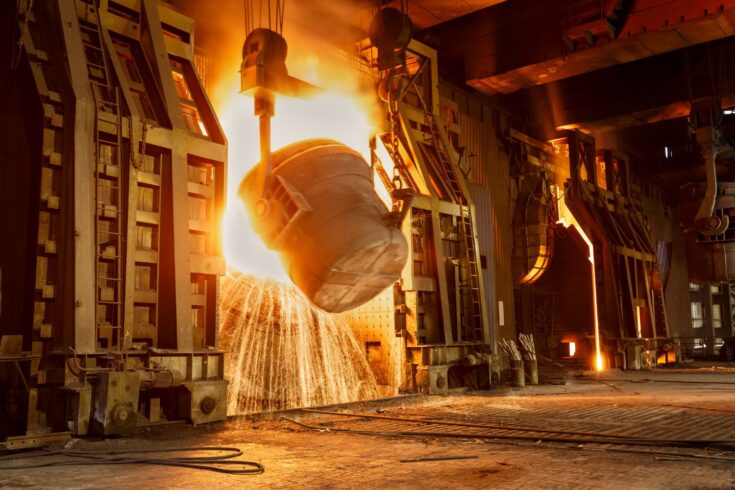The groundbreaking Economic Material Innovation for Sustainable and Efficient use of Resources (EconoMISER) programme has successfully secured £18 million of funding to transition to the second stage in its development.
The EconoMISER project was created by the Foundation Industries Sustainability Consortium (FISC), which consists of:
- Materials Processing Institute
- Centre for Process Innovation
- Glass Futures
- Lucideon
- Henry Royce Institute
It was developed to enable and support the sustainable transformation of the UK’s foundation industries.
The funding, provided by the UK Research and Innovation TFI challenge, is delivered by:
- Innovate UK
- Engineering and Physical Sciences Research Council
- Economic and Social Research Council
The funding will help the consortium establish an industry-led partnership to drive innovation delivery and research to future-proof the foundation industries.
The foundation industries
The UK foundation industries are made up of the following sectors:
- metal
- cement
- glass
- paper
- ceramics
- chemicals
They also:
- employ 1.5 million people
- export over £320 billion of goods and services annually
- produce over 50 million tonnes of materials used in construction work, infrastructure projects, medicine manufacturing, packaging and more
However, these industries emit 40 million tonnes of carbon dioxide per year and failure to support their decarbonisation goals will risk the sector becoming uncompetitive with production transferring overseas.
Importantly, the UK will never achieve its own net zero goals without decarbonising the foundation industries as it is not logistically feasible to import the materials these industries produce.
Overcoming the barriers
Going forward, EconoMISER will lead projects based on six key themes.
Alternative fuels
This includes supporting the adoption of green energy solutions, including lower carbon and less polluting fuels such as hydrogen and biofuels.
Circular economy
This includes ensuring foundation industries resources are used as effectively and efficiently as possible to adopt a zero waste, recirculating system which will improve security of supply and reduce environmental impact.
Digital sensing
This includes:
- developing process monitoring and data capture practices to support remote and real-time decision making within manufacturing processes
- informing modelling, prediction and simulation and tracking through the make, use and end-of-life cycle
Process optimisation
This includes:
- designing and improving systems to minimise process variability, maximise resource utilisation and identify best practice
- ensuring companies make the most of their manufacturing ecosystems to reduce waste and energy consumption, boosting cost competitiveness in the UK
Sustainable materials
This includes:
- improving the recyclability of materials to ensure recovered materials are fit for purpose and developing new manufacturing processes which adopt recycled raw materials
- identifying alternative materials from sustainable sources to reduce reliance on mined raw materials
Training and skills
This includes working together to identify best practice for the training and development of people across the foundation industries, helping to address the skills gaps and to make these vital industries attractive places to work for everyone.
Building on success
The project, commenced in October 2022, has laid strong initial foundations and has successfully achieved key milestones. These include the delivery of strategy workshops to identify the priorities for future collaborative investment across the foundation industries.
Focus on sustainability and cost-competitiveness
Dr Ben Walsh, Deputy Challenge Director for TFI at Innovate UK said:
The foundation industries play a vital role in our highly industrialised economy in the UK, yet account for nearly half of all industrial carbon emissions. If the UK is serious about meeting its net zero goals, we must transform the foundation industries with a clear focus on sustainability and cost-competitiveness.
We are proud to have invested in the EconoMISER programme and are looking forward to working closely with the FISC partners to ensure the success of the scheme for the betterment of our world-leading foundation industries.
Creating space for research and innovation
Mike Biddle, Executive Director for Net Zero at Innovate UK added:
As the UK’s leading innovation agency, it’s great to see the continuing development of EconoMISER projects, with £18m in funding to advance into its second stage of development.
Projects such as EconoMISER, create space for research and innovation to prosper with an unparalleled depth of expertise shared across partners and industries. Industry-wide engagement and collaborative investment are vital in developing sustainable solutions and reducing costs across the supply chain.
The initiative will incorporate best practices across the foundation industries to propel the UK as the fastest transitioning economy to net zero.

